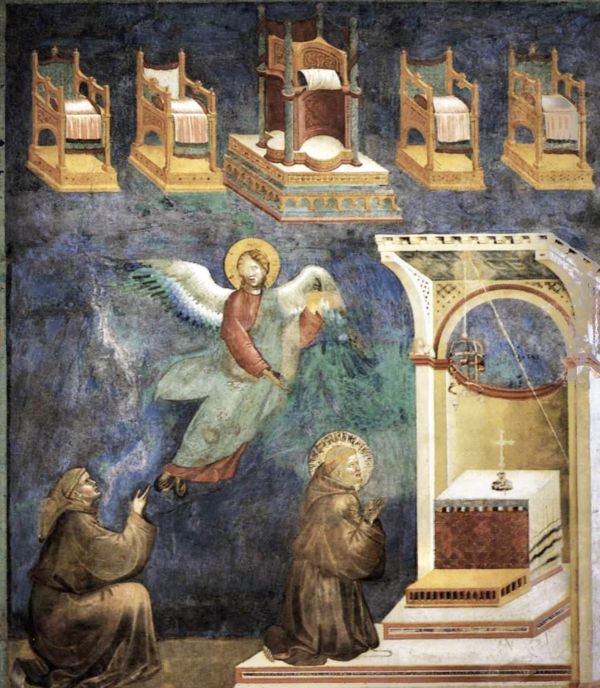In this Sunday's Gospel according to Luke, Jesus emphasises the wisdom of those who choose the last place and the relative dishonour, in perfect gratuitousness.
The sources clearly show the Poverello's aversion to appearing and choosing conditions of prominence.
Francis loved God's poverty and humility and sought to follow them in every way in his life.
He hated the pomp of the front seats and wanted to feed on humiliation, following in the footsteps of the Son of God, who taught this in his Gospel.
Just read what Francis says to his brothers in his Letter to the Entire Order to be amazed at how much he loved humility.
"Look, brothers, at the humility of God, and open your hearts to him; humble yourselves also, so that you may be exalted by him.
Hold nothing back, therefore, so that he who offers himself totally to you may receive you totally" (FF 221).
And again, in the Leggenda maggiore by St. Bonaventure:
"Francis, both in himself and in others, preferred humility to all honours, and therefore God, who loves the humble, judged him worthy of the highest glory, as was shown by the vision of a very virtuous and devout friar.
This friar, a travelling companion of the man of God, was praying with him one day in an abandoned church when he was raptured into ecstasy.
He saw many seats in heaven, and among them one more splendid and glorious than all the others, studded with precious stones.
Admiring the splendour of that eminent throne, he began to wonder anxiously who was destined to occupy it [...]
He heard a voice saying to him:
"This seat belonged to one of the rebellious angels and is now reserved for the humble Francis."
Returning to himself [...] the friar followed the Saint as he was leaving the church.
They resumed their walk, talking to each other about God [...] and then that friar [...] skilfully seized the opportunity to ask Francis what he thought of himself.
And the humble servant of Christ said to him:
'I feel I am the greatest sinner'.
'If Christ had treated the most wicked of men with the same mercy and goodness with which he treated me, I am sure that he would be much more grateful to God than I am'.
The friar had confirmation that his vision was true, knowing well that, according to the testimony of the Holy Gospel, the truly humble will be raised to that exalted glory from which the proud are rejected" (FF 1111).
22nd Sunday in Ordinary Time, year C (Lk 14:1,7-14)












